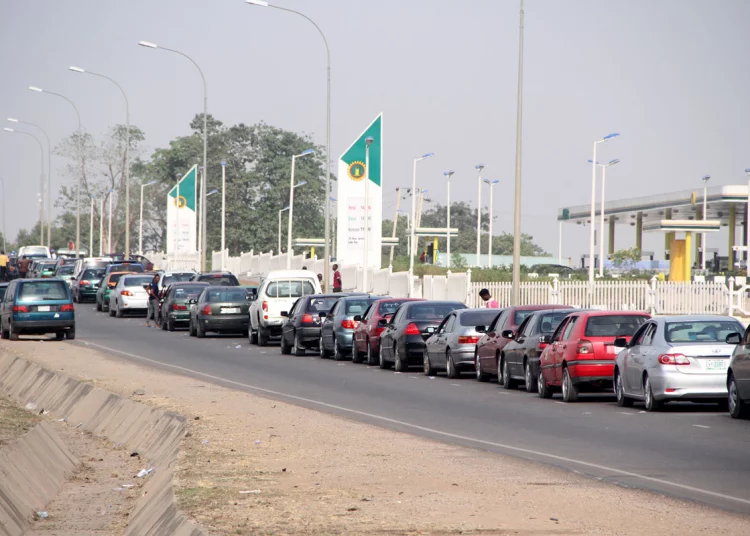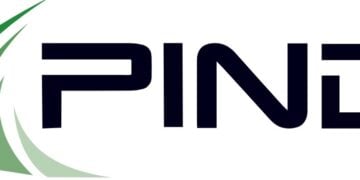Fuel scarcity and hike, which heightened in Lagos, at the weekend, could extend to other parts of the country as oil marketers rejected the current supply structure.
To this end, commuters and motorists are having difficult times in Lagos as long queues overstretched capacity of petroleum dispensing outlets mostly operated by major oil marketers.
LEADERSHIP reports that independent marketers are gradually winding down operations following inability to access products given outrageous ex-depot prices.
President of Petroleum Products Retail Outlets Owners Association of Nigeria (PETROAN), Dr Prince Billy Harry has said, his members now access products at the cost of N190 and N113 per liter of petrol from private depot operators.
“Information reaching me in Abuja indicates that my members are buying petrol between N190 and N113 per liter. So the environment is no longer favourable and the competition favours the major marketers because they have the capital so what is happening is that our members would shut down until the major marketers exhaust their delivery to enable them sell.
“We cannot sell at the same price they sell because the structure in terms of delivery time tilts towards their favour. So the situation in Lagos is likely to continue and probably get bad except government intervenes” Harry told LEADERSHIP on phone.
He said the situation can get better if government considers credit sales to independent marketers and direct sales to members.
Queues Resurface As Fuel Scarcity Hits Rivers
President of the Independent Petroleum Marketers Association of Nigeria (IPMAN), Chinedu Okoronkwo, told our correspondent on phone that marketers can no longer carry the burden as he called on the Nigerian National Petroleum Company, Limited (NNPCL), to restructure allocation and distribution pattern or the situation would escalate.
“We are calling on the NNPCL to separate the Independent Marketers from the Major Marketers and Depot operators. We have five zones in the country. The NNPC should give us direct allocation at each zone.
“What I am advocating is direct allocation to Independent Marketers. We are not fairly treated and we cannot go to coastal areas to buy petrol at higher price and sell at the same price with the majors.
“Except this is addressed this situation being experienced will escalate. The NNPCL is bring the product so why deliver to depots who indiscriminately hike price. We control 80 per cent of the downstream market so if we are not given products the effect will be felt as it is happening today” Okoronkwo said.
Further, Gillis-Harry stated that product unavailability and logistic challenges are some of the reasons for recurring fuel scarcity, especially in Abuja, Lagos, and other parts of the country.
The PETROAN president, however, attributed Lagos fuel scarcity to unavailability of the product at depots and also price disparity. “As far as Lagos is concerned, if there is a scarcity or price issue in Lagos it is simply based on the fact that there are no products in the depots, that’s the reality,” he said.
On the hike in prices of petroleum products, he said, “Let me explain this to all of us, petroleum product pricing is supposed to be dynamic in the sense that if we bought from (Pipelines and Products Marketing Company Limited) PPMC depots at PPMC price, everybody is expected to sell in their retail outlets at N165.
“But if we had to buy from other depots who had bought from the PPMC and had to ship it and go through the necessary protocols of delivering it to the depots from where we have to take it, the price will be higher because the cost is dollarised, everything about petroleum products is dollarised that is just what is happening.”
His position reflects the concerns raised Oil Marketers Association of Nigeria which blamed charges in foreign exchange by the Nigerian Maritime Administration and Safety Agency (NIMASA) and the Nigerian Ports Authority (NPA) as creating disruption in market operations.
The marketers have asked the agencies to obey Federal Government’s directive on Naira transactions for ports charges.
Vice chairman II, Depots and Petroleum Products Marketers Association of Nigeria (DAPPMAN), Mahmood Tukur, had stated recently.
The federal gvernment through its downstream regulator, and based on agreement reached with stakeholders, directed ports charges to be collected in Naira.
The directives was contained in a communique issued in November 2021, and signed by heads of the Nigeria Midstream and Downstream Petroleum Regulation Authority, Nigeria National Petroleum Company Limited (NNPC Ltd), Major Oil Marketers Assocoation of Nigeria and DAPPMAN.
Tukur alleged that the agencies were yet to comply with directives and continue to collect charges in dollars.
“Government gave directives that these agencies should henceforth charge marketers in Naira, but that had not been implemented. That’s a major challenge.
“The dollar price is practically driven by demand, if there is no supply, obviously the price will rise. So, every time a vessel needs to berth, we have to pay ports charges in dollars. But we are saying that can be paid in Naira. That’s one way of actually taking demand (for dollars) out of the market and it will cool the forex effects.
“If these products are consume locally and destine for local ports, why is the NPA and NIMASA charging in dollars?
“They should simply implement a directive given by the government, and we can assure that this will also bring down the price of petroleum products,” Tukur said.
The statement also quoted the chairman of the DAPPMAN, Winifred Akpani as saying that, forex conundrum was affecting petroleum marketers.
She noted that, to charter a vessel that could convey 20,000 metric tonnes of PMS within Nigeria for 10 days, freight charges are being denominated in dollars.
“That comes to about N220 million at official forex rate of N440, and a whooping N440 million for petroleum marketers who have to source forex in the parallel market at N880. This implies an additional cost of N11 per litre for this transaction due to the forex official/parallel market differential.
“For this same transaction, Jetty fees, again charged in dollars, comes to N15.4 million at official FOREX rate and N30.8 million for petroleum marketers who source from the parallel market. In the same vein, Jetty Berth is charged in dollars and comes to N2.2 million at official FOREX rate and N4.4 million at parallel market.
“Then there are port dues (NPA and NIMASA) charged in dollars, which come to N71.51 million at official FOREX rate and N142.796 million for marketers who source FOREX from the parallel market,” she said.
Akpani described the trend as “quite burdensome” which made operational expenses and procurement increasingly difficult for its members.
She stated that amid this inclement situation, petroleum marketers compete unfavourably with the NNPC which has upper advantage.
She said the NNPC, historically, the supplier of last resort currently served as the major oil downstream company in the country with the acquisition of OVH.
“Without a level-playing field, especially one that guarantees access to dollars for all marketers at official rate, marketers’ ability to import products is continually and severely hampered.
“As a significant portion of their operations and critical operational and capital expenses are denominated in dollars.
“Full availability of products, particularly PMS will experience a marked boost when access is granted to FOREX at official rate for all operators and subsidies removed completely.”
Meanwhile, as the situation deteriorates in Lagos, attendants at filling stations charge motorists extra money to buy full tank at outlets.
Chinedu Ezeogu, a motorist, who said he waited for about four hours to drive into one of the stations, complained that, the attendant demanded the sum of N500 if he would fill his tank.
According Ezeogu, attendants have begun to ration sales so as to accommodate others.





